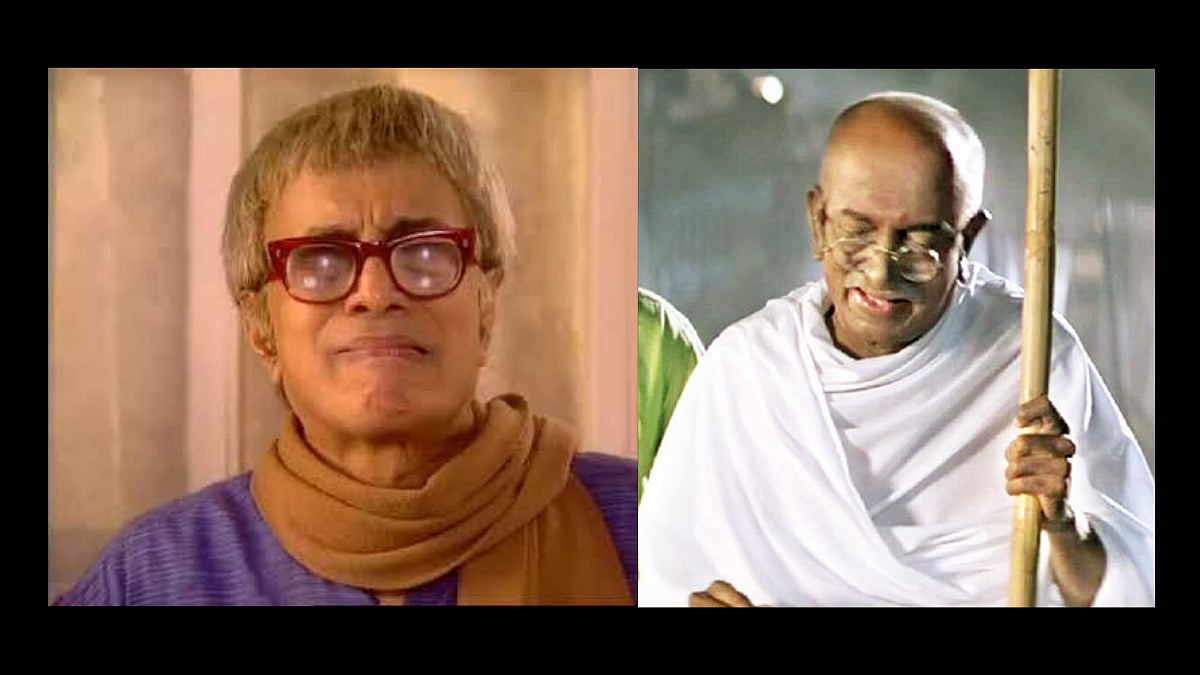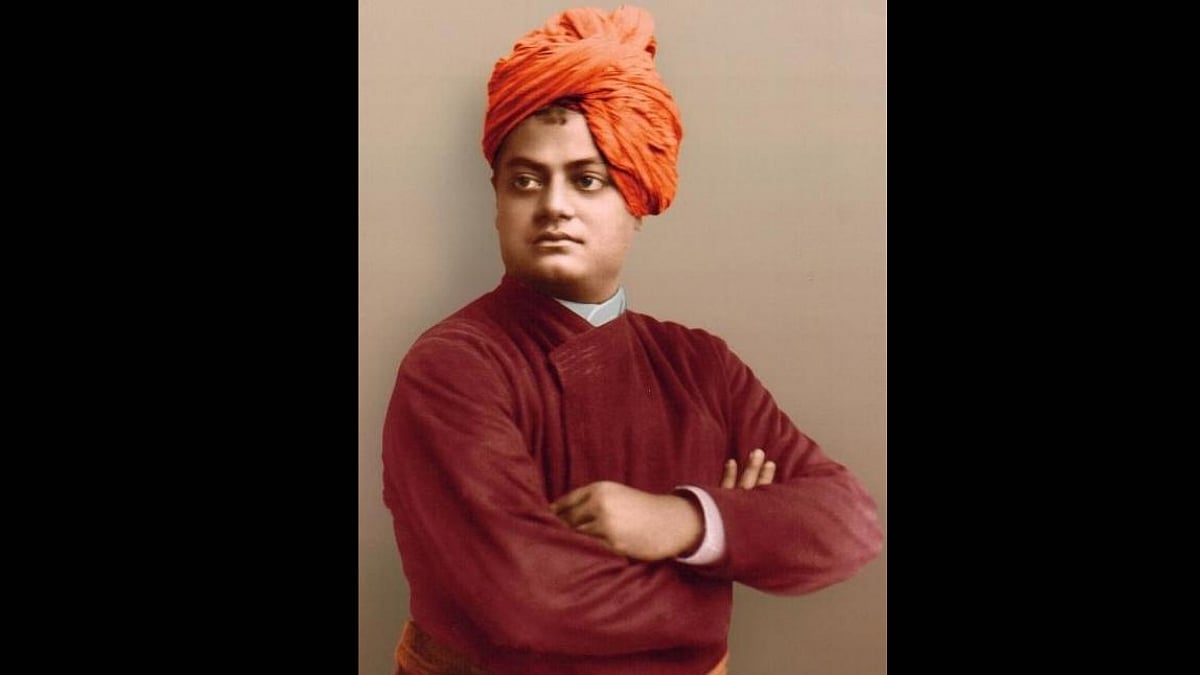On International Day of Women and Girls in Science, Dr Deepa Agashe, Assistant Professor, National Centre for Biological Sciences, Tata Institute of Fundamental Research, Bengaluru, posted a heartwarming message on Twitter, saying, “Science is for everyone and needs everyone. I love being a scientist and waking up every day with the opportunity to ask questions to understand the world. Join us in appreciating, inspiring and supporting female scientists.” In her short statement, Agashe, in a way, summed up her pride, passion and also subtlely hinted at how our world needs science, and science needs women and girls.
The pride and passion highlighted by Agashe is the common thread connecting all the other nine women achievers in the field of science and technology whose achievements were acknowledged and were felicitated by the President last year. The awardees included Dr Amiya Rajbongshi, retired vice-principal, North Lakhimpur College, Lakhimpur, Assam, who won the National Award for Outstanding Efforts in Science and Technology Communication through print media, and Dr Uma Kumar, Professor and Head, Department of Rheumatology, AIIMS, New Delhi, who was honoured with the National Award for Outstanding Efforts in Science and Technology Communication in the electronic media. Apart from Agashe, Dr Niti Kumar, Scientist, Central Drug Research Institute, Lucknow, and Dr K Geetharani, Assistant Professor, Department of Inorganic and Physical Chemistry, Indian Institute of Science, Bengaluru, were honoured with the SERB Women Excellence Award last year. Dr Shalini Gupta, Associate Professor, Department of Chemical Engineering, IIT, Delhi, and Dr Shweta Rawat, Scientist, Defence Institute of Physiology and Allied Sciences, DRDO, Delhi, were conferred the National Award for Young Woman Showing Excellence Through Application of Technology for Societal Benefits. The three women researchers who were honoured with the Augmenting Writing Skills for Articulating Research (AWSAR) Award included Dr Joyita Sarkar (in the Post Doctoral category), S. Chris Felshia and ML Bhavya (both in the PhD Scholar category). Many other women from all over India were AWSAR awardees in the PDF category.
Getting started
Rajbongshi owes it all to her parents - father Biren Phukan and Lakhima Phukan - for all she is today. “After matriculation, I joined Cotton College in Guwahati. I graduated in 1968 and got first class and also stood first in Assam. I completed my master’s degree from Gauhati University in 1970 in first class, bagged the first position in the state and PhD from Osmania University, Hyderabad.” She was inclined towards teaching and so joined the North Lakhimpur College as a teacher. "I enjoyed teaching and visiting different villages and bringing science to the masses by being associated with science societies. I was trying to develop scientific temper in young minds,” she says.
Sarkar, who completed her schooling from Kendriya Vidyalaya, and then did B.Sc in Microbiology and M.Sc in Biotechnology, obtained a PhD from IIT Kanpur. "My life took a turn at IIT Kanpur where I was introduced to the world of biomaterials and tissue engineering, and it became an integral part of me." AWSAR awardee Felshia from the Central Leather Research Institute, Chennai, got to know about a plethora of biotechnology-related research and development from her zoology teacher in Class 8. "It was impressive. It was like a spark in the twilight that made me choose biology as the major subject for my higher secondary, bachelor's and then master's. My mind was determined to innovate and research something exciting and essential for mother Earth," she says enthusiastically.
Family matters
Sarkar, who is currently an assistant professor of biotechnology at the Institute of Chemical Technology Mumbai, Marathwada Campus, Jalna, says, "I aspire to do a lot of research on tissue engineering using modern technologies like 3D bioprinting. I owe lot to my better half, Dr Swapnil Kamble, who continues to be constant support and makes me believe in myself whenever I am disheartened.” Rajbongshi mentions her husband, Dr. Mukunda Rajbongshi, as her pillar of support. “His active involvement in the pursuit of knowledge and his commitment towards serving the society has always been an inspiration for me,” she says, beaming with pride. In the same vein, Felshia adds that her family was extraordinarily understanding and supported her decision to make a career in research. "To date, I have been enjoying the collaboration with my guide and mentor, Dr Gnanamani, who has been playing a pivotal role in grooming me up as a professional researcher with a persevering and tireless attitude towards work."

Talking about her parents, Agashe, says, "They were quite liberal, especially my mother, who always emphasised that career comes first and foremost. I always had the freedom to make my career choices." She rues how many girls in our country don't have access to education and career choices or resources because their families might think it is not worth investing in a girl. "So even if they have the aptitude to pursue, there are a lot of deterrents. Steps are being taken to address those challenges," she hopes.
Experience wise
To these encouraging trends, Kumar cites a recent example from January 2020, when a female student approached her for PhD. "I interviewed her and found that her concepts were clear, and she had a passion for science. She had a four-year-old son and her second baby was due in June. She joined the lab after maternity leave. Every day, I see her struggling and still keeping her chin up in her role as a mother, wife and researcher. Her husband is supportive, but her in-laws aren't and that leaves her in a fix sometimes," says Kumar. She emphasises that "to encourage women in science, we as a society have to evolve to ensure that students, like mine who wants to keep at it come what may, continue their passion in science and not leave it midway due to domestic responsibilities."
Rajbongshi has a vital point to add to the role that women have played in science. “From Marie Curie, Rosalind Franklin to Kalpana Chawla, history speaks of the success stories and the unfailing attitude of women and their commitment towards science. If observed at the grassroots level, women's role in science has challenged society's narrow shackles. Women uphold the responsibility of moulding the family, the society and then the nation at large. Therefore, we must try and imbibe a scientific temper in them early on so that they can mould the younger ones accordingly.”
Even though girls and women have more opportunities coming their way in STEM today than before, there's a visible lack of enabling infrastructure and environment. The women scientists were unanimous in adding that though there are many reasons, the lack of role models and gender bias are the major hindrances. "The role of women in STEM should be imperative and always has been. But women are not being granted the right acknowledgement to their contributions to science and technology. Recognition is needed for women in STEM," says Felshia.
Women can also use science to challenge superstitious and help make the society move forward. "Further, when women are actively involved in scientific endeavours, they act both as pioneers and role models for thousands of other women," says Rajbongshi.
Fair deal?
Agashe accepts that she is one amongst those who have not faced any significant challenges in her early years, and a few small ones, only at later stages of her career. Highlighting the major roadblocks, she tells, "A major challenge that women face at the higher education system and career levels is people's pervasive inability to effectively not see gender as an issue. People look at you differently and treat you differently because you are a woman, which changes how they interact and perceive you. It decides what kind of opportunities are given to you at a higher stage."
Sarkar highlights that apart from implying gender equality, education, and independence, women's most important role in science is the perspective. "It is now proven (psychologically and physiologically) that men and women have different thought processes. Therefore, it is vital to have both perspectives in science. Remember that scientific outcome is the analysis of experimental data, and the analysis depends on the thought process," she says.
Gender bias in the workplace hurts. The first step is to accept that skill is a skill, it can't be differentiated as a woman's or man's. "Many times, a woman doesn't get the same attention as any other accomplished male colleague. Men are taken far more seriously than us. These little things undermine our confidence. They signal that we are not as good as we might think or not half as good as our male counterpart," explains Agashe. This is more a matter of attitude, and it is all-pervasive in India, and prevalent even among women. "If that attitude changes, it will be easier for young girls," adds Agashe.
Mentor material
To encourage girls in STEM, Agashe reiterates that it is important to provide role models to mentor young girls, who are studying across schools and colleges that do not have abundant resources and requisite funds. Felshia, who has completed her PhD thesis and is currently awaiting University review and evaluation, would like to remain a designated researcher and groom other budding researchers. "I will collaborate with others to create value for environmental research," she adds. The award-winning biologist at TIFR adds, "There's a need to make them aware of what science is all about and inform them about career prospects in this field. We need to communicate well and provide mentorship at all stages of their career to bring more girls and women into the field and help them stay put."
Accolades galore
Humbled at receiving the national award, Rajbongshi says, “It is indeed a great honour for me. It recognises my consistent efforts in building a scientific temper among the masses. This recognition is also an inspiration that instils the courage to commit to the goal.”
Felshia believes the award means encouragement for her research journey and motivation to work harder in new areas while it motivated Sarkar to share work with the non-scientific world and reach out to everyone, especially during the lockdown. For Agashe, the award is an important recognition for what she and other women in science are doing. "It serves as motivation and inspiration for young girls. It also brings a lot of attention from society. People get to know about it through news, read and be informed, get curious, think, and maybe take it up as well. These make them more aware of science and scientists. It bodes well for our fraternity - science in general and scientists in particular," she says. On her part, Rajbongshi believes that the award will also inspire those people, particularly the women who, despite embodying a scientific temper, are reluctant to write, contribute and express their minds fearlessly. "This award upholds honour, courage, inspiration and progression,” she says.
The pandemic was a challenging one, both mentally and physically, for all of us. But Rajbongshi got ample time to complete the remaining part of the translation of “Origin of Species" by Charles Darwin and is currently working on the publication process. She plans to work more on spreading scientific awareness among the masses and reaching out to more people through her efforts.
These women scientists believe that the pandemic is likely to widen the existing gender disparities, especially for those at the early stages of their career, unless steps are taken to keep women and girls in the career pipelines in STEM. "So let's do more now than ever to recognise women’s contributions in science, smash stereotypes and defeat discrimination against women and girls," says Agashe.












